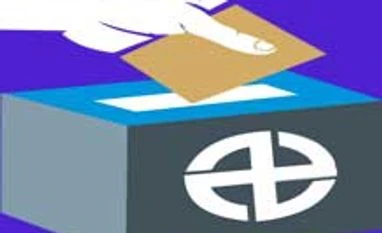According to sources, the Gujarat Local Authorities Laws (Amendment) Bill has the blessings of the Rashtriya Swayamsevak Sangh (RSS) and could become a precursor to similar laws in other Bharatiya Janata Party (BJP)-ruled states.
RSS chief Mohan Bhagwat is a strong votary of “100 per cent polling” as an objective that would increase involvement of the common man in issues of national interest. Prime Minister Narendra Modi, too, is a supporter of compulsory voting, as is veteran leader L K Advani.
More From This Section
There is a sharp divide on whether the law is constitutional. Experts such as former Lok Sabha secretary-general Subhash C Kashyap believes the law is an important step in ensuring increased voting percentage. However, Jagdeep S Chhokar, founder of the Association of Democratic Reforms, argues the law is unconstitutional, violates the basic tenets of democracy and is likely to be struck down by the judiciary. The contentious Bill was earlier blocked by former Gujarat governor Kamla Beniwal and has now been approved by successor O P Kohli. The law also provides for 50 per cent reservation for women in local bodies.
Beniwal had refused to give assent to the Bill, passed twice by the BJP-led state government when Narendra Modi was chief minister. Beniwal had contended that compulsory voting violated Article 21 of the Constitution. The Gujarat Assembly first passed the Bill in December 2009 but Beniwal returned it to the government, stating “forcing the voter to vote is against the principles of individual liberty” and violated the freedom that citizens enjoy under Article 21. She said “the government should not have entered into a controversy to compel voters to act against their conscience by means of coercion.” Currently, the right to vote is neither constitutional nor a fundamental right, but a statutory right.
In 2002, the National Commission to Review the Working of the Constitution, also called the Constitution Commission, recommended that it be made part of one’s fundamental duties in the Constitution. The Atal Bihari Vajpayee-led National Democratic Alliance (NDA) government set up the Commission on February 22, 2000. It gave a final report two years later to then law and justice minister Arun Jaitley, on March 31, 2002. Among its recommendations was “duty to vote at elections, actively participate in the democratic process of governance and to pay taxes should be included in article 51A”.
The terms of reference of the Commission were to “examine, in the light of the experience of the past 50 years, as to how best the Constitution can respond to the changing needs” of modern India, but without interfering with the basic structure or features of the Constitution. However, the report was never implemented because of deep differences between members on several issues. Kashyap, chairman of the Commission’s drafting and editorial committee, wrote in his comments in the report then that voting was compulsory in many countries. He said former President R Venkataraman “strongly favoured making voting compulsory”.
Kashyap told Business Standard his personal view continued to be that the right to vote should be governed by a “scheme of incentives and disincentives”. Disincentives could include denial of passport, driving licence or ration cards to any who cannot produce a certificate of voting. “My study shows that voting percentage can easily be increased to 90-95 per cent without making it compulsory but adopting disincentives,” he said. According to Kashyap, this could, in the years to come, pave the way for mobile polling booths to cater to those with travelling jobs, etc.
However, Chhokar is of the view that the Gujarat law goes against the basic tenets of democracy. “The law is trying to ensure forced participation, not democratic participation. If there is such a strong urge to strengthen democracy, then why don’t political parties become more democratic in their internal functioning and stop foisting their choice of candidates on people?” he asked. Chhokar said the Supreme Court in its ‘NOTA (none of the above) judgment’ had protected the right to not vote. “It had said taking away the right to not vote was akin to taking away the individual's freedom of expression. I think this Gujarat law will be struck down,” he said.
)